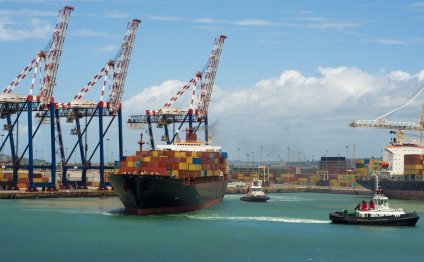
How to do Business in South Africa?
South Africa is one of the most sophisticated, diverse and promising emerging markets in the world. Strategically located at the tip of the African continent, South Africa is a key investment location, both for the commercial opportunities within its borders and the potential it offers as a gateway to the rest of the continent - a market of some 1-billion people. South Africa has enormous potential as an investment destination: a unique combination of highly developed first-world economic infrastructure with a vibrant emerging market economy. It is also one of the most advanced, broad-based industrial and productive economies in Africa. Here are just 10 of the many reasons to do business in South Africa:
South Africa's disciplined fiscal framework promotes domestic competitiveness, growth and employment and increases the economy's outward orientation.
Key economic reforms have created solid macroeconomic stability. Taxes have been reduced, tariffs lowered, the fiscal deficit brought under control, and exchange controls relaxed. The National Development Plan Despite its bright prospects, South Africa still faces the key challenges of poverty, unemployment and inequality. The National Development Plan is a bold effort to overcome these. The plan aims, by the year 2030, to achieve a real annual economic growth rate of 5%, reduce inequality, and rein in unemployment from its current 25% to a mere 6%. Two ambitious economic frameworks support the targets of the National Development Plan.- The New Growth Path aims to create a more developed and equitable economy, largely by creating 5-million jobs.
- The Industrial Policy Action Plan aims to promote broader participation by historically disadvantaged groups in the mainstream of the industrial economy. It plans large-scale state investment in infrastructure, small business and skills development, and interventions targeting specific areas of the economy.
South Africa's Johannesburg Stock Exchange (JSE) rates among the top 20 exchanges in the world by market capitalisation.
The JSE is regarded as a mature, efficient, secure market with world-class regulation, trading, clearing, settlement assurance and risk management. It has harmonised its listing requirements, disclosure and continuing obligations with those of the London Stock Exchange and offers superb investor protection. The World Economic Forum's 2015-16 Global Competitiveness Index rates South Africa first in the world - out of 140 countries - for financing through the local equity market, and second for the regulation of securities exchanges. The index also rates South Africa first for the strength of auditing and reporting standards, and gives it third place for both the efficacy of corporate boards, and the protection of minority shareholders interests. South African law is historically founded on Roman-Dutch law, although aspects of it - particularly company law and the law of evidence - have been heavily influenced by English law. General commercial legal practices relating to transactions and the drafting of commercial agreements are generally globally applicable and in line with international norms and conventions. South Africa's globally admired and progressive Constitution - which includes a Bill of Rights) - is the highest law of the land, regulating the protection of human rights and the principles behind all legislation. One of its guarantees is the independence of the judiciary. Trade and industry takes place a free enterprise economy. The courts are open to foreigners on exactly the same terms and conditions as South African citizens. But many commercial disputes avoid the courts, instead being resolved with arbitration and by agreement between the parties. Sanctity of contract is protected under common law, and independent courts ensure respect for commercial rights and obligations.South Africa has world-class infrastructure including a modern transport network, sophisticated telecommunications and superb tourism facilities.
The government has identified massive infrastructure projects as key to boosting the country's economic growth rate and creating employment, and is spending billions of rands on getting the investment ball rolling. South Africas success in hosting the worlds largest sporting event, the 2010 Fifa World Cup, has shown that the country is capable of undertaking and successfully completing major projects on time.
Source: www.southafrica.info
RELATED VIDEO

iBooknow.com: Things to do in Johannesburg, South Africa

How to do business in countries of BRICS? CCTV2 ...

How to do Sustainable Business in Africa - Expert Views
Share this Post
Related posts
Agricultural College in South Africa
JANUARY 28, 2026
Elsenburg Agricultural Training Institute was established in 1898 and was the first centre for agricultural training in Africa…
Read MoreAgricultural Engineering in South Africa
JANUARY 28, 2026
An excellent agricultural engineering researcher who is also helping to build Africa s human resource capacity – that s Prof…
Read More










